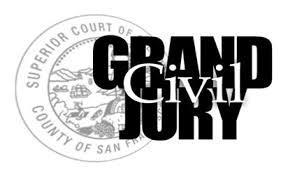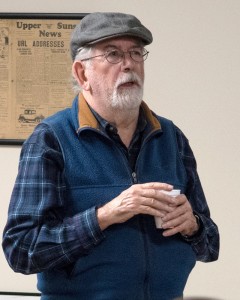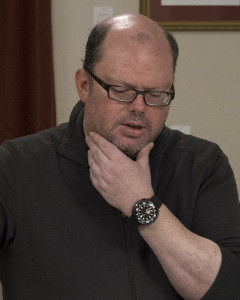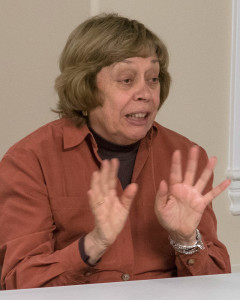Monday, February 23, 2015

Civil Grand Juror and SHARP vice-president Charles Head convened two fellow members of the 2013-14 San Francisco Civil Grand Jury, Mike Egge and Maryta Piazza, to summarize the findings from the grand jury’s six reports.
The panelists explained how they were named to the Civil Grand Jury, how it was organized, and what its procedures were. Having sworn an oath of secrecy regarding their deliberations, the panelists could not go beyond what their reports overtly state.

The Port of San Francisco is a large leaser and property manager. Criticizing political interference in the Commission that runs the Port, the grand jury report said the Port needs to be free of such interference if the Port is to succeed in increasing maritime business. Splitting Commission appointments between the Mayor and the Board of Supervisors might help.
In its report on the city’s degree of readiness for rising sea levels, the Civil Grand Jury said that most city departments have not planned for rising sea levels and that most should be concerned about it. Rising waters are likely to inundate the airport, PacBell Park, and the Warriors’ planned arena before long.

In its report on ethics, “Ethics in the City: Promise, Practice or Pretense,” the grand jury found an unsatisfactory ethical climate in the city and chided the Ethics Commission for lax policing. The jury criticized such practices as lobbying by the making of payments at the mayor’s behest to a third party (such as America’s Cup), “pay to play” contributions such as helping to finance the mayor’s travel to China, and failing to register as a lobbyist. The Chiu-Herrera legislation locally, and the Fair Practices and Procedures Commission at the state level, may provide suitable remedies.
In its report on housing, the panel stated that affordable housing is a laudable goal but one that is getting harder to achieve, according to the Mayor’s Office on Housing. Recommendations abound from all stakeholders.

Every year the Civil Grand Jury must study the jails. This year’s jury lauded the intake system at Jail 1 and the school program at Jail 5 but noted the continuing air quality problem at Jail 4.
Lastly, the Civil Grand Jury studied city commissions, varying in its evaluations of them. The panel found that it is even unclear how many city commissions exist: the number depends on whose list you use.
The panel concluded that all the players in all areas it studied need to be more transparent and accountable.